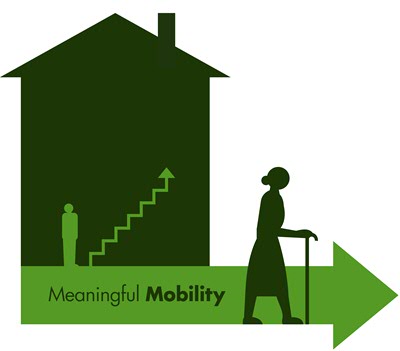Project description

Mobility or physical movement contributes to health and well-being in later life and is a key issue in gerontological research. Most studies have focused on the contribution of outdoor mobility to active ageing, but physical and cognitive impairments restrict the mobility of many older adults. MeaningfulMobility will take a more comprehensive approach than previous research. It will be the first to connect the capability approach to mobility research to study diversity in movement within and between places by healthy and impaired older adults.
MeaningfulMobility aims to develop and employ an integrative approach to explain mobility practices in later life in relation to well-being. The research objectives are:
- To compare objectively measured mobility patterns of older adults within and between places, and between impaired and healthy older adults in three socio-cultural contexts;
- To conduct an in-depth study of the subjective mobility experiences within and between places of impaired and healthy older adults, in three socio-cultural contexts;
- To use these insights to connect mobility research with the capability approach to gain comprehensive understanding of the diversity in mobility practices in later life in relation to well-being.
An in-depth comparative study will be carried out of three categories of older adults: healthy older adults; older adults with early stage Alzheimer’s; and older stroke survivors in three socio-cultural contexts of the Netherlands, the UK and India. The study will apply an innovative convergent mixed-methods design to measure objective mobility patterns and subjective mobility experiences. Data will be subject to geographic, regression, and thematic analysis, and the findings integrated using advanced grounded visualisation methods. This study has the potential to transform gerontological mobility research and to provide policy inputs on the mobility, well-being and health of our ageing population.
| Last modified: | 16 October 2019 1.30 p.m. |
